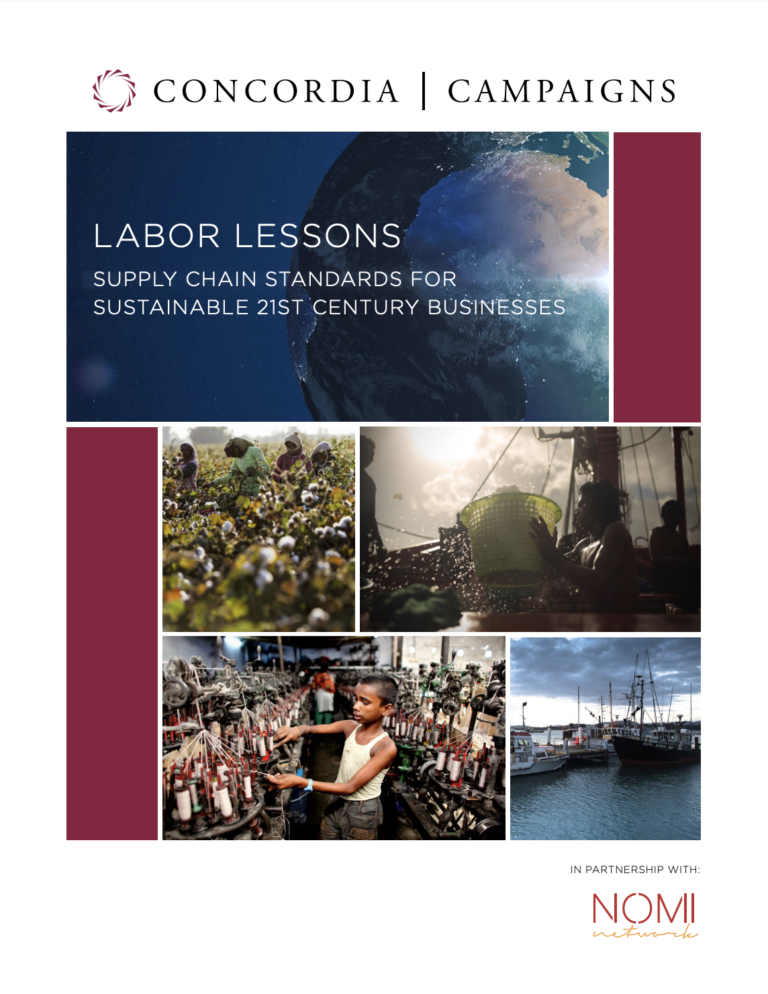Labor trafficking and slave labor are modern-day challenges that represent historic abuses, appearing in nearly every industry sector and across all populated continents today. However, the 21st century offers new tools to help corporations move beyond such exploitative practices, for which there is no room in our society. These tools come from government agencies, non-profits, and corporations. Political and economic leverage, when coupled with innovation and technological advances, offer possible solutions to modern-day slavery.
In Summer 2016, Concordia and the Nomi Network convened a roundtable to identify industry transferrable labor lessons that can help eradicate labor trafficking and slave labor. The organizers’ objective was to better define standard-setting metrics that can be applied across industries in order to address the current ambiguity in the labor rights space. Participants included leading industry representatives, senior government officials, and human rights organizations with expertise in supply chain standards. The discussion highlighted numerous challenges faced across industries, while also pinpointing anti-trafficking successes and replicable achievements. At the end of the discussion, a series of recommendations and action steps were produced. The paper captures the roundtable’s key findings and seeks to contribute to an already rich discussion taking place amongst the Luxury Marketing Council and other industry leaders.

